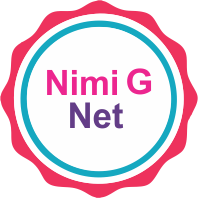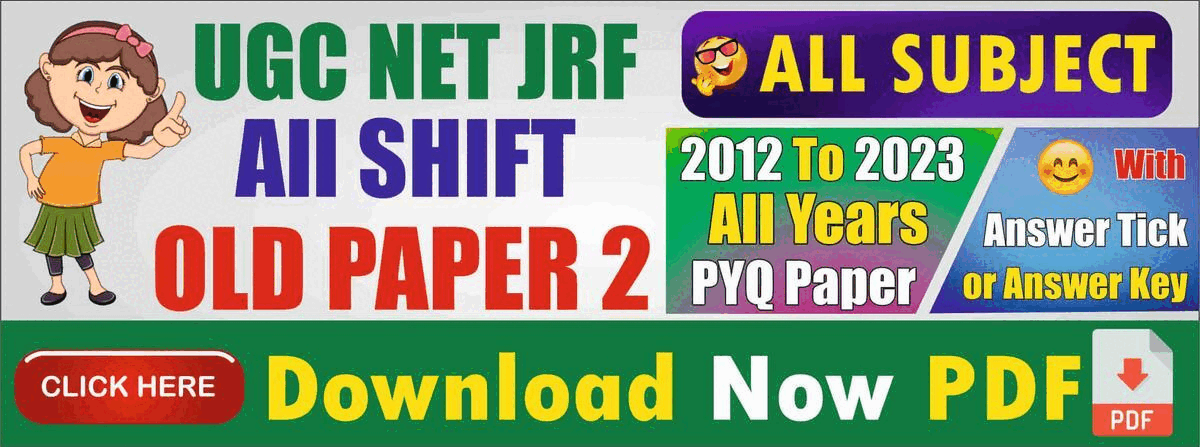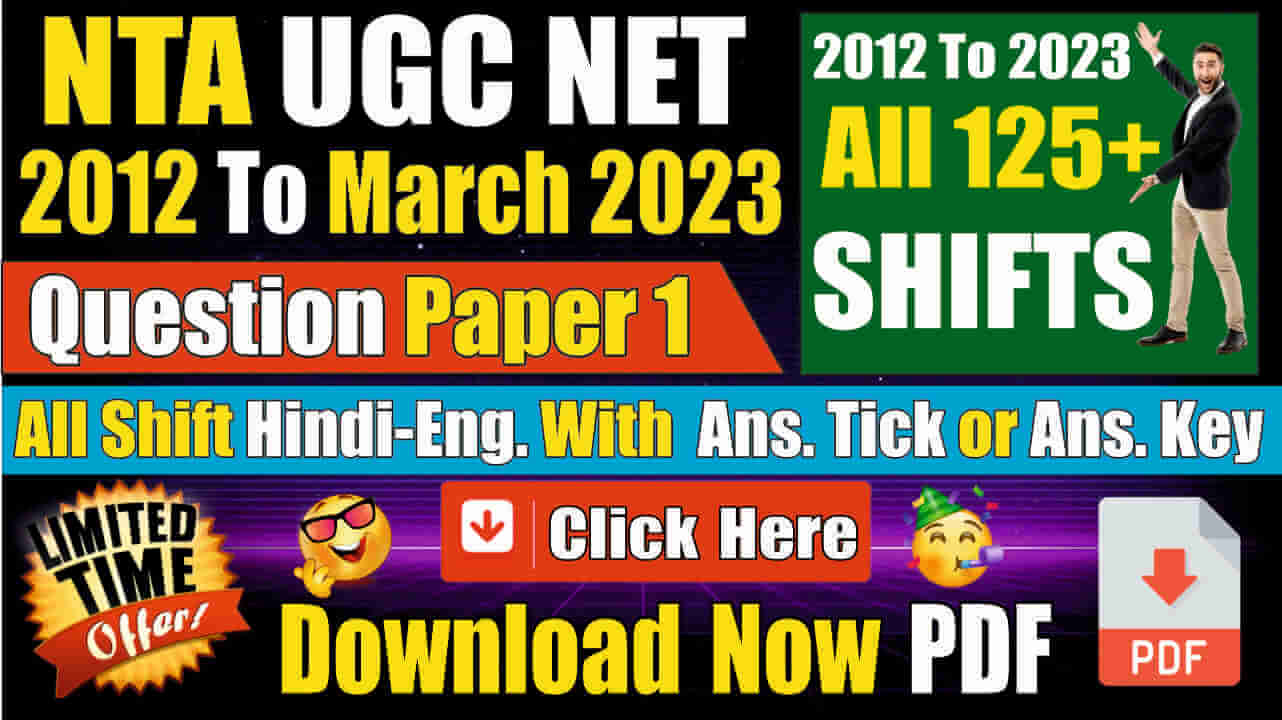Are you searching for the UGC NET Human Rights and Duties Syllabus 2023 PDF Download? Look no further, as we have compiled all the important details and tips to help you prepare for the exam.
The UGC NET Human Rights and Duties exam is conducted by the National Testing Agency (NTA) for candidates who wish to pursue a career in the field of Human Rights and Duties. The exam assesses the candidates’ knowledge in the subject and tests their eligibility for lectureship and research fellowships.
If you are planning to appear for the UGC NET Human Rights and Duties 2023 exam, it is important to have a thorough understanding of the syllabus and exam pattern. In this article, we have compiled all the important information you need to know about the UGC NET Human Rights and Duties Syllabus 2023 PDF Download
UGC NET Human Rights and Duties Exam Pattern 2023:
The UGC NET Human Rights and Duties exam consists of two papers – Paper 1 and Paper 2. Both papers are conducted on the same day, and the duration of each paper is 3 hours. The exam is conducted online, and each question carries 2 marks. There is no negative marking for incorrect answers.
The UGC NET Human Rights and Duties Exam consists of two papers: Paper 1 and Paper 2.
Paper 1:
- Duration: 3 hours
- Number of questions: 50
- Total marks: 100
- Type of questions: Multiple Choice Questions (MCQs) based on general aptitude, teaching and research aptitude, and current affairs.
Paper 2:
- Duration: 3 hours
- Number of questions: 100
- Total marks: 200
- Type of questions: MCQs based on Human Rights and Duties subjects.
Both papers are conducted in a single session with no break in between. The candidates are required to appear for both papers to be considered for the selection process.
It’s important to note that there is no negative marking for incorrect answers in UGC NET Human Rights and Duties Exam.
UGC NET Human Rights and Duties Syllabus 2023: Download PDF
The UGC NET Human Rights and Duties syllabus is divided into two parts – Paper 1 and Paper 2. Here’s a detailed syllabus for both papers.
Paper 1 Syllabus:
Teaching Aptitude:
- Teaching: Nature, objectives, characteristics, and basic requirements.
- Learner’s characteristics: Characteristics of adolescent and adult learners, and individual differences.
- Methods of teaching: Teacher-centered vs. learner-centered methods; Off-line vs. online methods.
- Evaluation systems: Elements and types of evaluation, evaluation in higher education, and grading system.
Research Aptitude:
- Research: Meaning, types, and characteristics.
- Steps of research.
- Methods of research.
- Research Ethics.
Reading Comprehension:
- Comprehension passages.
Communication:
- Communication: Nature, characteristics, types, barriers, and effective communication.
- Verbal and non-verbal communication.
- Classroom communication.
Logical Reasoning:
- Understanding the structure of arguments.
- Evaluating and distinguishing deductive and inductive reasoning.
- Verbal analogies.
Data Interpretation:
- Sources, acquisition, and interpretation of data.
- Quantitative and qualitative data.
- Graphical representation and mapping of data.
Paper 2 Syllabus:
Nta Ugc Net Human Rights and Duties Syllabus 2023 in English
Unit-I HUMAN RIGHTS AND DUTIES: CONCEPT AND NATURE
• The Basic Concepts: Individual, Group, State, Non-State Actors, Civil Society, Liberty, Freedom, Equality, Rights, Justice; Human Values: Humanity, Compassion, Virtues, Human Dignity and Human Duties
• Human rights as universal, inherent, inalienable rightsand moral rights; Universal human rights vs. Cultural Relativism, Naturalist-Positivists Debate
• Indian Concepts: Raj Neeti, LokNeeti, DandaNeeti, Nyaya, Dharma
• Different Generations of Human Rights
• Liberal Perspective: Locke, Rousseau, Thomas Paine, J.S. Mill, Classical Liberalism, Neo-liberalism
• Marxian Perspective: Marx, Gramsci, Rosa Luxemberg
• Gandhian Perspective (Ruskin, Thoreau, Tolstoy): State, Power, Swaraj, Rights and Duties
• Dalit Perspective: Phule, Narayna Guru, Ambedkar
• Religious Perspectives
• Feminist Perspective
Unit-II
ORIGIN AND EVOLUTION OF HUMAN RIGHTS AND INTERNATIONAL STANDARDS
• Human Rights in Ancient Thoughts
• Human Rights in Middle Ages,Magna Carta
• Modern Movement of Human rights,Lockean Philosophy: Theory of Natural Rights,American Declaration of Independence, American Bill of Rights, The French Revolution and its goals of Liberty, Equality and Fraternity, Marxist Revolutions, Anti-Colonial Movements, Freedom Movement in India
• International Standard Setting—UniversalDeclaration of Human Rights (1948)
• Impact of the UDHR on the Constitutions of the „New‟ States
• International Standards: UN Sponsored or „Core‟International Conventions onHuman Rights: International Covenant on Civil and Political Rights (ICCPR), International Covenant on Economic, Social and Cultural Rights (ICESCR), Convention on the Elimination of ALL Forms of Discrimination against Women (CEDAW), Convention against Torture, Rights of Child Convention, Convention on the Rights of Migrant workers, Convention against Racial Discrimination (CRD), Convention on Rights of Persons with Disabilities (CRPD)
• State Responsibility for Protection of Human Rights: The Concept of the “Responsibility to Protect”
• Vienna Declaration on Human Rights 1993
• Helsinki Declaration
• ASEAN Declaration
Unit-III
SOCIETY, ECONOMY, POLITY, RELIGION AND CULTURE—THEIR INTER- RELATIONSHIP
• Impact ofSocial Structure on Human Behaviour; Role ofSocializations inHuman Values, Human Rights and Duties
• Science and Technology, Modernization, Globalization and Dehumanization
• Social Stratification: Racial andCaste Prejudice and Discrimination; Human Rights Issues of Weaker Sections andEthnic Minorities
• Women: Gender Discrimination, Domestic Violence andOffences against Women; Gender Sensitive Laws
• Children: Child Abuse, Child Labour, Street Children
• Social Structure andSocial Problems: Social and Communal Conflicts andSocial Harmony
• Rural Poverty, Unemployment, Bonded Labour, Modern Forms of Slavery
• Urban Poverty, Slums, Lack of Basic Civil Amenities, Sex Workers
• Rights of Refugees, Rights of Indigenous People, Aged Persons, Migrant Workers and Human Rights Violations, Human Rights of Persons with Disabilities (PwDs) under the Rights of Persons with Disabilities Act, 2016Rights of Displaced Persons
• Challenges in Human Rights: Religious Fundamentalism, Terrorism, Underdevelopment, Human trafficking International Crimes,
Unit IV
STATE AND INDIVIDUAL LIBERTY
• The Changing Nature ofState with Special Reference tothe Developing Countries
• Soft State, Interventionist State, Welfare State, Repressive State
• Political Regimes andHuman Rights
• Impact of Science and Technology on Human Rights and Duties
• Human Rights andInternational Politics: Emergence ofa New Global Order— Tehran Conference (1968)—Vienna Conference (1993)
• International Humanitarian Law: 1949 Geneva Conventions and Additional Protocols of 1977—International Red Cross Society
• International Criminal Tribunals(Rwanda and Former Yugoslavia) and the International Criminal Court (ICC)
• International Intervention: The Question ofNation-State, Citizenship andSovereignty
• Right of Self-Determination: Autonomous Movements, Secessionist Movements
• Grassroots Movements andHuman Rights
Unit-V
UN AND VARIOUSAGENCIES, INTERGOVERNMENTAL (IGOs) AND NON-GOVERNMENTAL ORGANIZATIONS (INGOs)
• UN: Establishment, Objectives, and the Charter Provisions
• UN Principal Organs: General Assembly, Economic and Social Council, Security Council
• Subsidiary Organ: Human Rights Council
• The Human Rights Council Advisory Committee
• Specialized Agencies: UNICEF, UNESCO, ILO, WHO
• INGOs such as the International Commission of Jurists (ICJ), Amnesty International (AI), Human Rights Watch, Greenpeace
• People‟s Union for Civil Liberties (PUCL), People‟s Union for Democratic Rights (PUDR) and Other Civil and Democratic Rights Organizations in India.
• UN High Commission forRefugees (UNHCR)
• UN Commission ontheStatus ofWomen
• UN High Commissioner for Human Rights
Unit-VI GROWTH MODELS AND HUMAN RIGHTS
• Models of Development: Growth Approach, Basic Needs Approach, Sustainable Human Development, Rio Declaration on Environment and Development, 1992, Rio +20, Conservation of Natural Resources, Agenda 21, Bio-Diversity Convention 1992
• Globalization andHuman Rights: Dynamics ofGlobalization, Emergence ofMarket Forces,Assertion ofCivil Society, Retreat ofState, Privatization, Liberalization
• Emergence of Information Age
• Economic Growth Strategies (Developing Countries): Implications for Poverty Eradication, Employment issues, Planned Development andSocial Inequality
• World Trade Organization: Implication for Human Rights,Impact on Developing Countries with special referencetoIndia
• Intellectual Property Rights: Patents Law, Trade Related Intellectual Property Rights (TRIPS), Trade Related Investment Measures (TRIMS),General Agreement on Trade and Services (GATS), Agreement On Agriculture (AOA)
• Transnational Corporations (TNCs) and Human Rights Situation in Developing Countries
• Right to Development: The Third World Concerns, Working Group Recommendations, UNDP—initiatives, UN Declaration on the Right to development
• State and Development of the Marginalized/Disadvantaged Groupsin India: The Poor, the Unemployed andthe Socially Dislocated People
• Workers‟ Rights, Minimum Wages Act—Problems of Implementation, Right to Security of Food, Health, Education
Unit-VII DEVELOPMENT, UNDERDEVELOPMENT AND SOCIAL ACTION
• Need for Collective Action in Developing Societies and Methods of Social Action
• Land, Water and Forest Issues with special reference to India
• Social Movements: Political, Social and Religious Reform
• National Commission for Women, Children, Minorities, Scheduled Castes and Scheduled Tribes
• Backward Class, Dalit and Women Movements
• Agrarian and Peasant Movements
• Right to a Healthy Environment
• Principle of Sustainable Development
• Ecological and Environment Movements
• Civil Societies and NGOs, NGOs of India
Unit-VIII HUMAN RIGHTS AND INDIAN CONSTITUTION
• Indian Civilization: Change and Continuity.
• Indian Constitution: Freedom Movement
• Indian Constitution: Sociological Foundation
• Constitutional Vision of Role ofthe State
• Constitutional Vision of Freedom: Fundamental Rights and the International standards
• Constitutional Vision of Justice: Directive Principles of State Policy and international standards
• Public Interest Litigation (PIL), Indian Judiciary and Human Rights
• Judicial Interpretations: Landmark JudgmentsFundamental Duties
• Constitutional Amendments
• Fundamental Duties
Unit-IX CONSTITUTIONAL GOVERNANCE
• Rule of law, Good Governance
• Constitutional Organs: Inter-and intra-Relationships/Conflict and Cooperation.
• Fundamental Rights and Repressive Laws: Preventive Detention and Anti- Terrorist Legislations, Armed Forces Special Power Act
• Imposition of National Emergency: The Societal Experience.
• The Criminal Justice System: Crime, Punishment and Human Rights with Special Reference to IPC &Cr. P.C.and Indian Evidence Act
• Economic, Social and Cultural Rights: The Directive Principles of State Policy: The Question of Effectiveness and Enforcement; their relationship with Fundamental Rights
• Legislation forthe Weaker Sections: The Questions of Enforcement
• Law Enforcing Agencies: Police, Military and Para-Military Forces—Emerging Experience
• Human Rights Enforcement: The Protection of Human Rights Act, 1993, NHRC, State Human Rights Commissions, Human Rights Courts
• Human Rights Education: Problems and Prospects
Unit-X INTERNATINAL ENFORCEMENT OF HUMAN RIGHTS
• Treaty Bodies under the „Core‟ Human Rights Conventions: General Overview
• “Universal Periodic Review” and “Special Procedures”
• Human Rights Committee (HRC)
• Committee on Economic and Social Rights (CESCR)
• Committee on Elimination of All Forms of Discrimination against Women(CEDAW)
• European Court of Human Rights (ECHR)
• Inter-American Commission on Human Rights
• Inter-American Court of Human Rights
• African Commission on Human and Peoples‟ Rights
• African Court of Justice and Human rights 2008
Paper 2 Syllabus Download Pdf:
Ugc Net Human Rights and Duties Syllabus 2023 in English
Ugc Net Human Rights and Duties Syllabus 2023 in Hindi
Preparation Tips for UGC NET Human Rights and Duties Exam 2023:
Here are some tips for preparing for the UGC NET Human Rights and Duties exam 2023:
- Understand the syllabus and exam pattern thoroughly.
- Make a study plan
- Refer to standard textbooks and study materials recommended for the exam.
- Practice previous year question papers and mock tests.
- Focus on time management and accuracy while attempting the questions.
- Take regular breaks and maintain a healthy lifestyle to avoid burnout.
- Join coaching classes or online courses if necessary.
- Stay updated with current affairs related to the Human Rights and Duties field.
Important Points:
- The UGC NET Human Rights and Duties exam is conducted by NTA for candidates who wish to pursue a career in Human Rights and Duties.
- The exam assesses the candidates’ knowledge in the subject and tests their eligibility for lectureship and research fellowships.
- The exam pattern of UGC NET Human Rights and Duties 2023 includes multiple-choice questions and is conducted in online mode.
- The marking scheme of the exam is +2 for a correct answer and no negative marking for incorrect answers.
- The duration of the exam is 3 hours, and the number of questions is 150.
- The UGC NET Human Rights and Duties Syllabus 2023 PDF Download is an important document that provides a detailed outline of the topics that will be covered in the exam.
- To download the syllabus, candidates can visit the official website of NTA and click on the link provided.
- The syllabus is available in PDF format and can be downloaded for free.
- The syllabus is divided into nine units, each covering a specific topic related to Human Rights and Duties.
- To prepare for the exam, candidates must understand the syllabus, make a study plan, practice previous year question papers, join a coaching institute, take mock tests, and revise regularly.
FAQs:
- Is there any negative marking in the UGC NET Human Rights and Duties exam 2023? Ans: No, there is no negative marking for incorrect answers.
- Can I download the UGC NET Human Rights and Duties Syllabus 2023 PDF from the official website? Ans: Yes, the syllabus is available for download on the official website of NTA.
- What is the duration of the UGC NET Human Rights and Duties exam 2023? Ans: The duration of each paper is 3 hours.
Also Check:
Conclusion:
In conclusion, the UGC NET Human Rights and Duties exam 2023 is a crucial opportunity for aspirants who want to pursue a career in the teaching or research field. To crack the exam, it’s essential to have a clear understanding of the syllabus, exam pattern, and prepare accordingly. With a comprehensive understanding of the UGC NET Human Rights and Duties Syllabus 2023 PDF download and proper preparation, you can clear the exam with flying colors.





